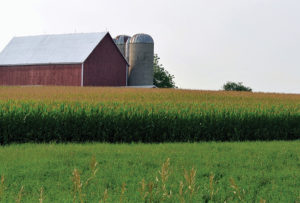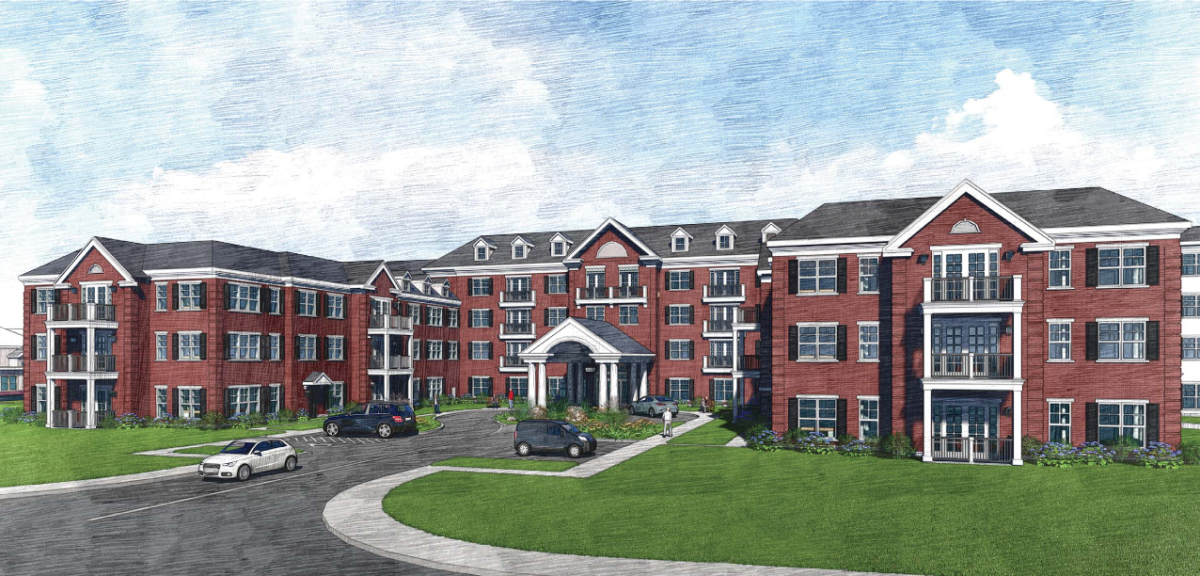

Blane Allen does not get ruffled if people are unfamiliar with Farm Credit East, the financial services cooperative that covers New England, New York and New Jersey within the Farm Credit System.
“We specialize in the agriculture industry,” said Allen, who oversees Westchester and Fairfield counties as part of his duties as vice president and branch office manager in the Middletown, New York, branch of Farm Credit East. “Unless you are in that industry or have ties to that industry, it”™s probably not surprising if you”™ve not heard of us.”
For an entity that many people consider to be under the radar, Farm Credit East is quite sizable. Last year, it originated $6.6 billion in loans, up from $6.3 billion in 2016. Nearly half of its lending activity in 2017 was concentrated in New York, with Connecticut accounting for a 6 percent share. Dairy-focused businesses made up 23.1 percent of its customer base last year.
Although Farm Credit East does not break down its lending by county, Allen ”” whose office also covers southern New York up to Kingston plus three New Jersey counties ”” observed that the Fairfield and Westchester markets were notable for a diversity of nondairy agricultural businesses.

“Over in Fairfield County, we work with commercial fishermen ”” including lobstermen, clammers, oyster harvesters ”” as well as horse farms, nurseries, greenhouses, some wineries and Christmas tree farms,” he said. “In Westchester, we work with nurseries, greenhouses and horse farms in northern Westchester, and agricultural retail benchmarks that include farmers markets.”
Allen said that residents who either owned or earned income from agricultural assets were eligible for loans from Farm Credit East, including home loans aimed exclusively at rural localities. For many agricultural businesses, Allen said, Farm Credit East is the proverbial only game in town when it comes to financing.
“I don”™t think that here in the East we have too many banks that specialize in that,” he said. “Their main business is residential lending or commercial lending. We are very knowledgeable about the industry we deal in because all we do is deal with this.”
Allen pointed to changes in the local agricultural industry as offering signs that Farm Credit East would be enjoying continued growth. “What”™s interesting to me is that over the last 10 years, there has been a resurgence of youth coming into agriculture from nontraditional ways,” he said. “Most people in the industry either grow up or had experiences on farms. Now, we are seeing people come in with no family farm experience. A lot of this is driven by consumers wanting to know where their food comes from.”
However, not everyone is enthusiastic about Farm Credit East or the other cooperatives within the Farm Credit System. Edwin Elfmann, senior vice president for agricultural and rural banking policy at the American Bankers Association, pointed out that the Farm Credit System was created as a federal entity in 1916, serving the needs of a very different era.
“Woodrow Wilson came up with this, that”™s how old it is,” he said.
Today, Elfmann said, the Farm Credit System is unique because it functions as both a direct lender and a government-sponsored enterprise, competing against commercial banks without sharing the same level of regulatory oversight and tax requirements imposed on banks.
“The Farm Credit System has $330 billion in assets,” Elfmann said. “It would be the seventh largest bank in the U.S. if it was a standalone bank. It is not a mom-and-pop operation, by any stretch.”
Elfmann also highlighted a few cases when the Farm Credit System has veered away from its agriculture-focused mission with some high-profile lending, including a $725 million loan in 2013 by CoBank, an Enfield-based Farm Credit System entity, to Verizon Wireless that helped secure its acquisition of the European cellular company Vodafone. One year later, CoBank enabled a $350 million credit agreement with Frontier Communications Corp. to complete its $2 billion takeover of AT&T”™s wireline business.
Nonetheless, Allen insisted that Farm Credit East is focused solely on agricultural lending and would not consider doing business from someone with no ties to this sector.
“As long as you have income from agricultural assets or own agricultural assets, you are eligible,” he said. “But if you”™re not a farmer or do not own agricultural assets or income from such assets and just come to the Farm Credit East for a home loan, no.”





















